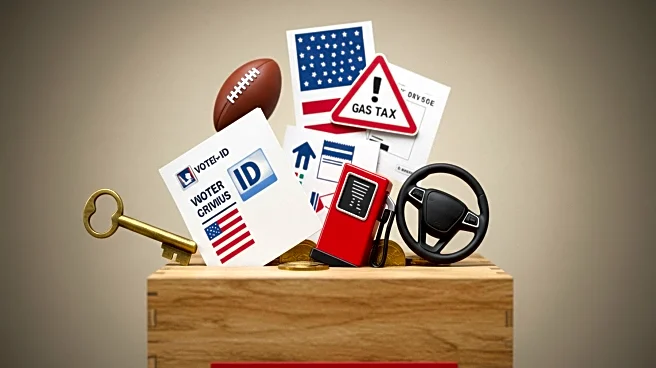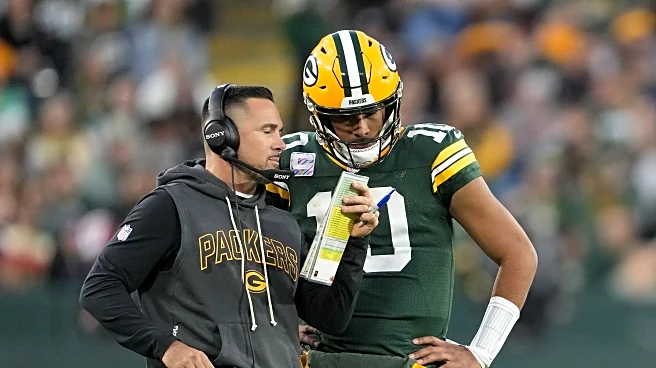What's Happening?
Massachusetts is reviewing over 40 proposed ballot questions that could appear in the 2026 general election. These initiatives cover a range of topics such as voter identification requirements, same-day voter registration, the repeal of the MBTA Communities Law, tax cuts, and regulations for self-driving cars. Attorney General Andrea Campbell will determine by September 3 which petitions meet constitutional requirements for certification. Following certification, supporters must gather tens of thousands of signatures to place their initiatives on the ballot. Notable proposals include a voter ID law requiring identification for voting, same-day registration, and a repeal of the MBTA Communities Law, which mandates multi-family housing in areas served by the MBTA. Additionally, there are proposals to regulate autonomous vehicles, reduce legislative stipends, and slash the gas tax.
Why It's Important?
The proposed ballot questions reflect significant policy debates in Massachusetts, potentially impacting voter access, housing development, transportation, and environmental conservation. Voter ID laws could affect election security and accessibility, while same-day registration might increase voter participation. The repeal of the MBTA Communities Law could influence housing availability and urban planning. Regulations on self-driving cars could affect technological innovation and safety standards. Reducing the gas tax may have economic implications for state-funded transportation projects. These initiatives highlight the state's approach to balancing economic growth, technological advancement, and environmental sustainability.
What's Next?
Attorney General Andrea Campbell will review the petitions for constitutional compliance by September 3. If certified, supporters must gather sufficient signatures to qualify for the 2026 ballot. Political leaders, advocacy groups, and citizens will likely engage in debates and campaigns to influence public opinion on these issues. The outcomes of these ballot questions could set precedents for other states considering similar measures, particularly in areas like voter ID laws and autonomous vehicle regulations.
Beyond the Headlines
The ballot questions may have deeper implications for Massachusetts' political landscape and societal norms. Voter ID laws could spark discussions on civil rights and election integrity. Housing policies might affect urban development and demographic shifts. Environmental initiatives could lead to long-term investments in conservation and climate resilience. These proposals reflect broader national trends in addressing technological, economic, and social challenges.











